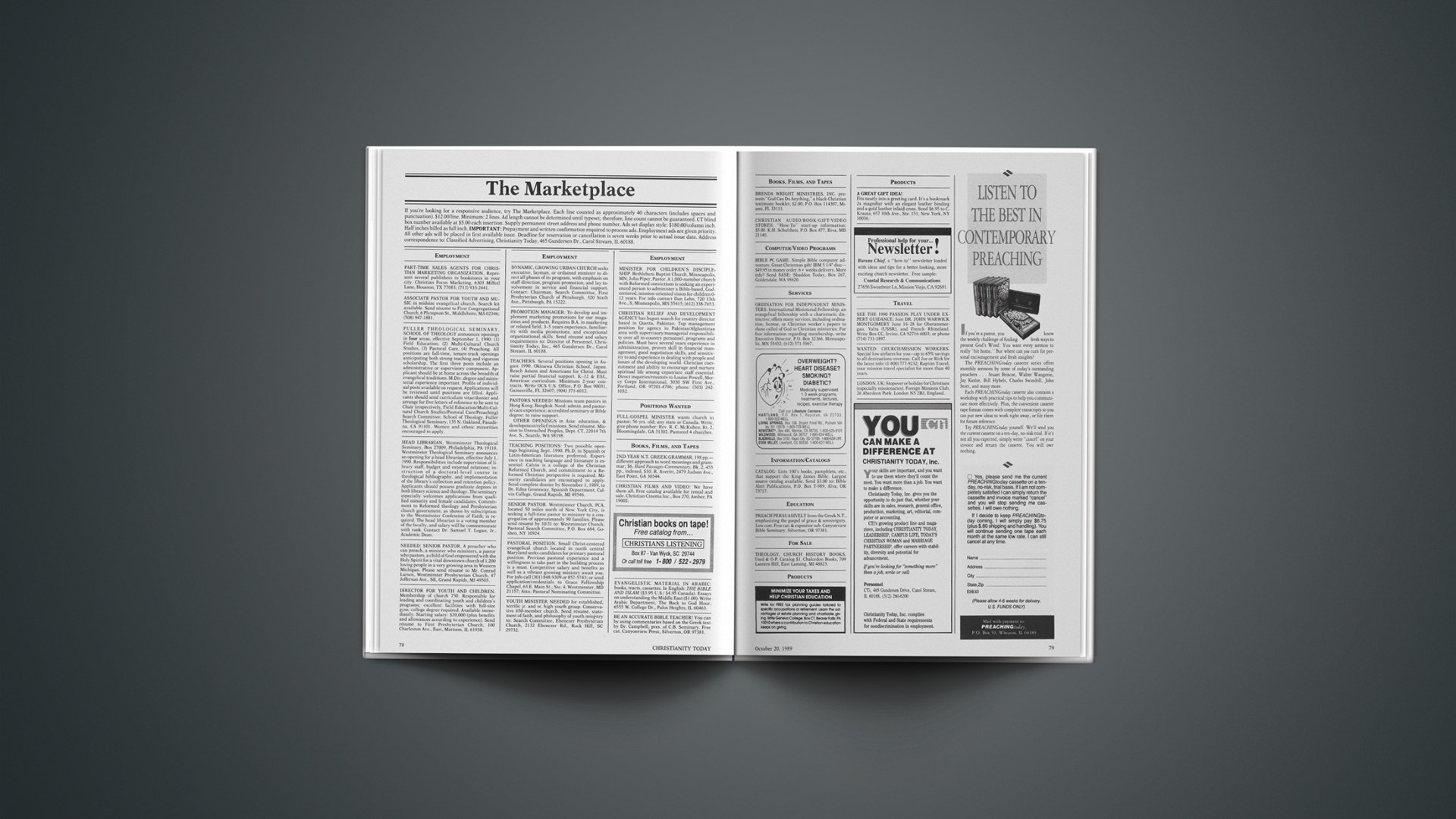“I like the inconveniences.… I want God, I want poetry, I want real danger, I want freedom, I want goodness, I want sin.” That is how the Savage in Aldous Huxley’s novel expressed his yearning to escape the stifling atmosphere of a “brave new world.”
Around the same time Huxley was writing Brave New Wrold, George Orwell (Animal Farm, 1984) was cranking out bleak essays on the future of freedom. In despair, he concluded that nations would soon face only one choice: whether their brand of totalitarianism would come from the Right or the Left. It seemed to him, as he watched Hitler and Stalin divide up the European continent, that all impetus for democratic liberalism was dying out and all Christian influence was fading away. Freedom was on the verge of extinction.
I happened to be reading some of Orwell’s gloomiest essays the very week that both Time and Newsweek featured cover stories on the unprecedented changes occurring in places such as the Soviet Union, China, Hungary, and Poland. Orwell was plainly wrong. Against all odds, freedom gusts on, and in the unlikeliest places. A decade ago, who could have predicted open debates in the Soviet Parliament, a non-Communist prime minister from the Solidarity party in Poland, and a prodemocracy movement in China? “Can we bore holes in granite? Do the drills for it exist?” asked Alexander Solzhenitsyn back then.
These are heady times in communist lands, and no one knows what to expect next. (We dare not speak too soon: The New Republic crowed that the student demonstrations in China had “put to tatters” the maxim that Gandhian nonviolence will not work in totalitarian states—an editorial sentiment put to tatters the following week by tanks and machine guns in Tiananmen Square.)
Dissident Soviets are now predicting the collapse of Marxism. The author Andrei Sinyavsky, for example, likens the Soviet system to an Egyptian pyramid. Built of colossal stones carefully assembled and ground to fit together, it looms as an impressive monument to majestic ideals of equality and brotherhood. But the monument encloses the tiniest compartment of useful space, in which lies only a mummy: Lenin. Inside, a mummy; outside, a desert of blowing sand.
The Paradox Of Freedom
At this moment in history, a third of the world seems poised to shed, or at least loosen, a political straitjacket. Like others who value freedom and democracy, I rejoice at the prospects. I must admit, though, that one question haunts me: What do we in the West have to offer?
We have wealth, of course, and for communist rulers that is the only reason for loosening the bindings. Despite its bright promise and exalted ideals, Marxist economics simply has not delivered. Few would dispute its failure. Tellingly, in the first truly free election in a communist society (Poland), non-Communist party candidates won 170 out of 171 seats.
We also have freedom, a mysterious, unquenchable force that still prompts refugees to set sail in leaky boats across pirate-ruled Asian seas, and to hide in fake gas tanks in order to cross an East German border. In America, the impulse of freedom that created our country 200 years ago drives it still.
Freedom is not, however, art end in itself. Nowhere is the paradox better expressed than in the letter to the Galatians, which consists of one long shout of freedom. “It is for freedom that Christ has set us free,” Paul grandly declares in chapter five. But two paragraphs later he adds, “But do not use your freedom to indulge the sinful nature; rather, serve one another in love” (NIV).
The truth that Paul expresses in religious terms applies also to the world of politics. Experiments with communism have proven that the lofty goal of “serving one another in love” cannot be realized by coercion; love for neighbors, especially the weak and the poor, cannot be legislated. Clearly, no “new socialist man” has emerged in the last 70 years.
On the other hand, freedom for freedom’s sake, anarchic freedom, offers little hope either (as the bicentennial of the French Revolution should remind us). No “new democratic man” has emerged out of our surplus of freedom either.
In the United States, the blight of racism does not go away; the gap between rich and poor is widening, not narrowing; in 1980, 500 homeless people slept on the streets of New York, while in 1989, 50,000 people do so. Yet even so, despite these discouraging signs, much of the world looks to us with hope and anticipation.
A Humble Democracy
I have only one word of caution: with all the seismic changes going on in global politics, this is no time for gloating or other signs of triumphalism. For us in the West, it should be instead a time for repentance, and humility, a recommitment to the old ideal of “serving one another in love.” We have freedom in abundance; the question is how we choose to use it. Too often, we Americans squander our freedom in self-indulgence. As novelist Philip Roth expresses it, “In America everything goes and nothing matters. While in places like Eastern Europe, nothing goes and everything matters.”
C. S. Lewis used to say that there are two opposite reasons for being a democrat. One is based upon the false, romantic doctrine that people are so good they deserve a share in the government. Often, governments founded on such noble principles lead to a new form of tyranny.
The other basis for democracy is the belief that fallen human beings are so wicked that not one of them can be trusted with any irresponsible power over his fellow creatures. Democracy works best in a national climate of humility, not self-congratulation.










